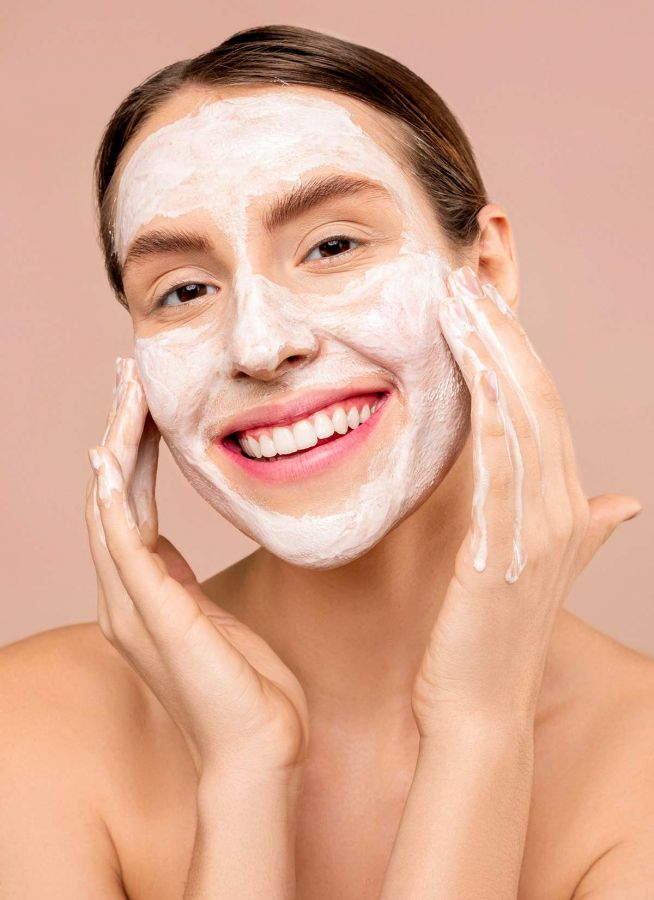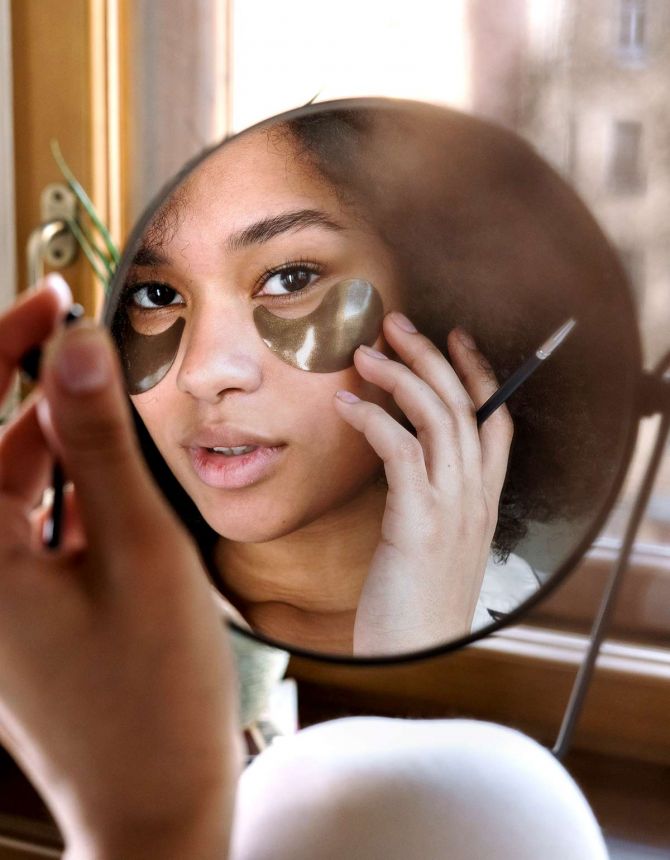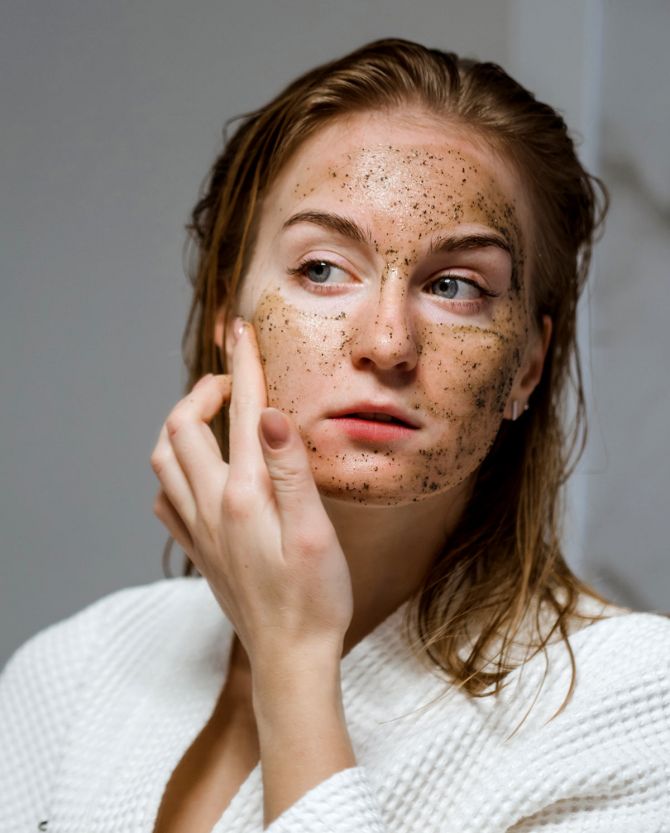Scrubbing your face multiple times in a day may make you feel that it looks fresh, fair and healthy.
But doing this can be detrimental to your skin warns Dr Dinesh Jain.

Our skin goes through a lot of wear and tear every day, as we have no control over the environment, pollution and severe climatic fluctuations.
It is the largest organ of our body and requires good care. Unfortunately, most of us indulge in unhealthy skin care practices that cause more harm than good.
Sometimes, this information comes via recommendations from relatives, friends or online. Before you realise it, these habits can cause significant damage to your skin.
Here are some practices you should avoid:

1. Using products recommended by people around you
This can be a very dangerous affair as many people recommend remedies they may have heard from someone else or something a doctor has recommended to them or to their friends.
Since people have different skin types, it is strictly recommended not to use products meant for someone else without consulting a professional.
A classic example is sulphur. It is a common chemical used in the preparation of many skin and hair care products. But such products are risky for those who have a sulphur allergy.
There are cases where slaked lime is casually recommended for skin conditions and this has caused severe reactions and burns on the skin.

2. All Ayurvedic, home remedies, herbal and natural products are safe
Many herbal preparations have known to cause allergic skin reactions.
Garlic and onion, which are commonly used to prevent hair fall and for various skin conditions can cause irritation and ulceration if the scalp or skin is already sensitive and fiery with dandruff or psoriasis.
It is wise to get ingredients checked by your dermatologist before using them. Better still, use products recommended by your doctor after a thorough examination.
Many food oils, like coconut and mustard, are used in India as a moisturiser. But such oils should never be applied on sensitive areas -- especially on the face -- as it can clog the pores and cause or worsen acne.

3. Scrubbing regularly
Scrubbing your face multiple times in a day may make you feel that it looks fresh, fair and healthy. But doing this can be detrimental to your skin and cause dryness and irritation.
Your skin has certain properties that help maintain its oil and water balance; washing it too much takes away the goodness.
Scrubbing gels and lotions have hard beads that can be really bad for your skin. I recommend scrubbing only twice or thrice a week.
In order to exfoliate your skin so that it looks better, please choose the right product with the help of your dermatologist.
Bathing brush dermatitis is a common condition in India. Instead of helping, a pumice stone or a scrubbing brush makes the skin dark and pigmented and is very difficult to treat.

4. One size fits all approach
In many families, members have the habit of using the same soap, shampoo, sunscreen and moisturiser.
This is extremely worrisome as different people react differently to different products.
Certain products can cause skin reactions and allergies. This has been particularly observed in children as they have sensitive skin.
Many times, we have come across cases of skin burn caused by the balm that has been applied on a child's chest or forehead when they have a cold or fever.
I have seen cases of severe ulceration of the skin in newborns caused because their fungal infection has been treated with a home remedy of garlic paste.
With the pandemic having changed the dynamics in the health industry, your skin expert is just a phone call or video call away. It is always better to consult an expert instead of experimenting with a home remedy.

5. Any sunscreen is okay
Most people feel that, if you are wearing a sunscreen, you can sit in the sun or be at the beach for as long as you want.
Many use sunscreen only on the face.
This can backfire because those who have sensitive skin or are exposed to the sun for long periods of time can still get sun burn and sun-caused skin damage.
Further, most people wear sunscreen just once in the morning, which is not correct.
You need to use sunscreen every four hours if you have outdoor work. And you need to use it on all the exposed areas of your body.
Try to avoid the sun during the peak hours when its rays are harsh.
Sunbathe only early in the morning and late afternoon onwards and not in scorching sunlight.
Another mistake we make is that we feel any sunscreen is okay.
This can cause problems if one is allergic to certain products used to make the sunscreen or when one has acne and a sunscreen with a heavy moisturiser causes the condition to worsen.
Dear Reader, worried about your skin?
Or your hair?
Is acne the bane of your existence?
Or dandruff causing you embarrassment?
Do send in your queries about your skin and hair problems to Dr Dinesh Jain at getahead@rediff.co.in (SUBJECTLINE: Dr Jain, can you help?).
Dr Jain is based in Mumbai and practises at Sparsh -- the Aesthetic Clinic. He is a well known cosmetologist and specialises in anti-ageing regenerative medicine, hair regrowth and stem cell-based treatment.
His qualifications include an MBBS, DV&D, MD and an MSc.
In his two decades of practice, he has treated thousands of patients including many Bollywood stars.
*Kindly note that all photographs have been posted only for representational purposes.

Disclaimer: All content and media herein is written and published online for informational purposes only. It is not a substitute for professional medical advice. It should not be relied on as your only source for advice.
Please always seek the guidance of your doctor or a qualified health professional with any questions you may have regarding your health or a medical condition. Do not ever disregard the advice of a medical professional, or delay in seeking it because of something you have read herein.
If you believe you may have a medical or mental health emergency, please call your doctor, go to the nearest hospital, or call emergency services or emergency helplines immediately. If you choose to rely on any information provided herein, you do so solely at your own risk.
Opinions expressed herein cannot necessarily provide advice to fit the exact specifics of the issues of the person requesting advice.










